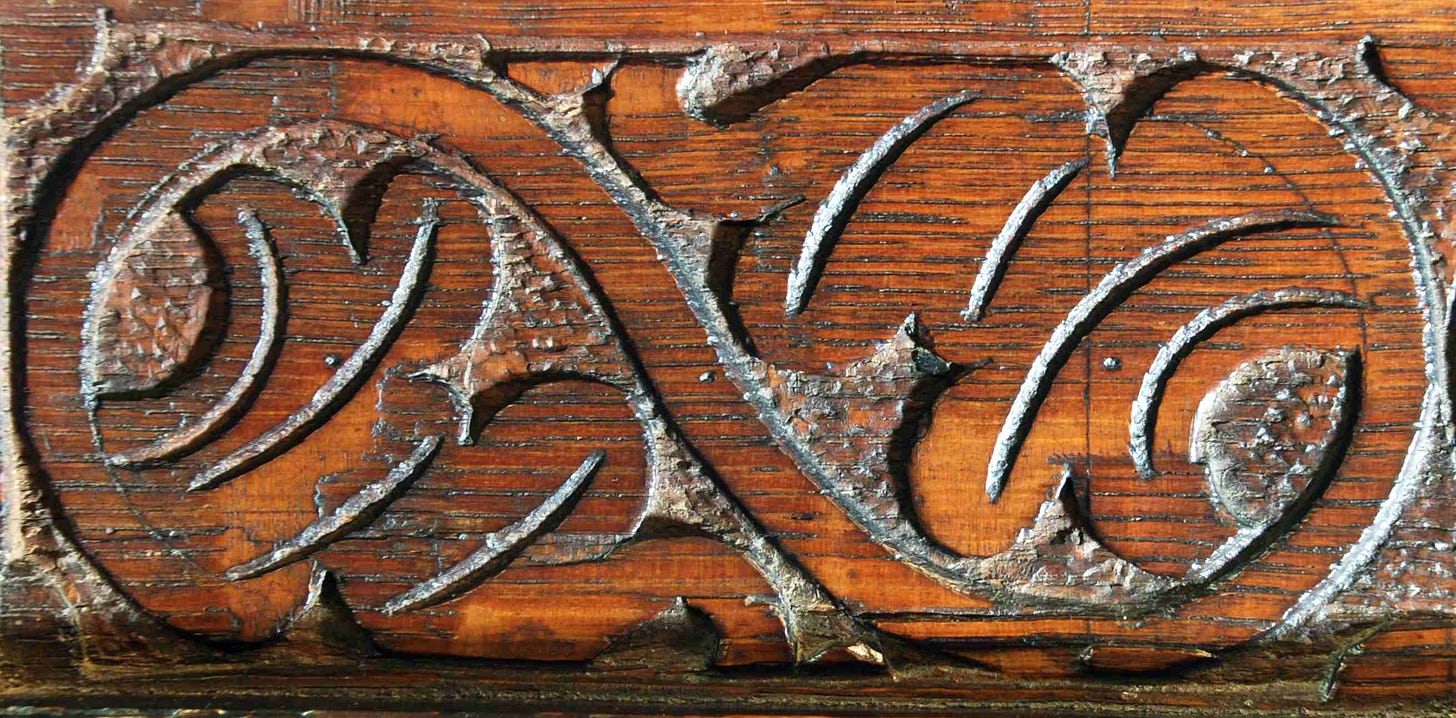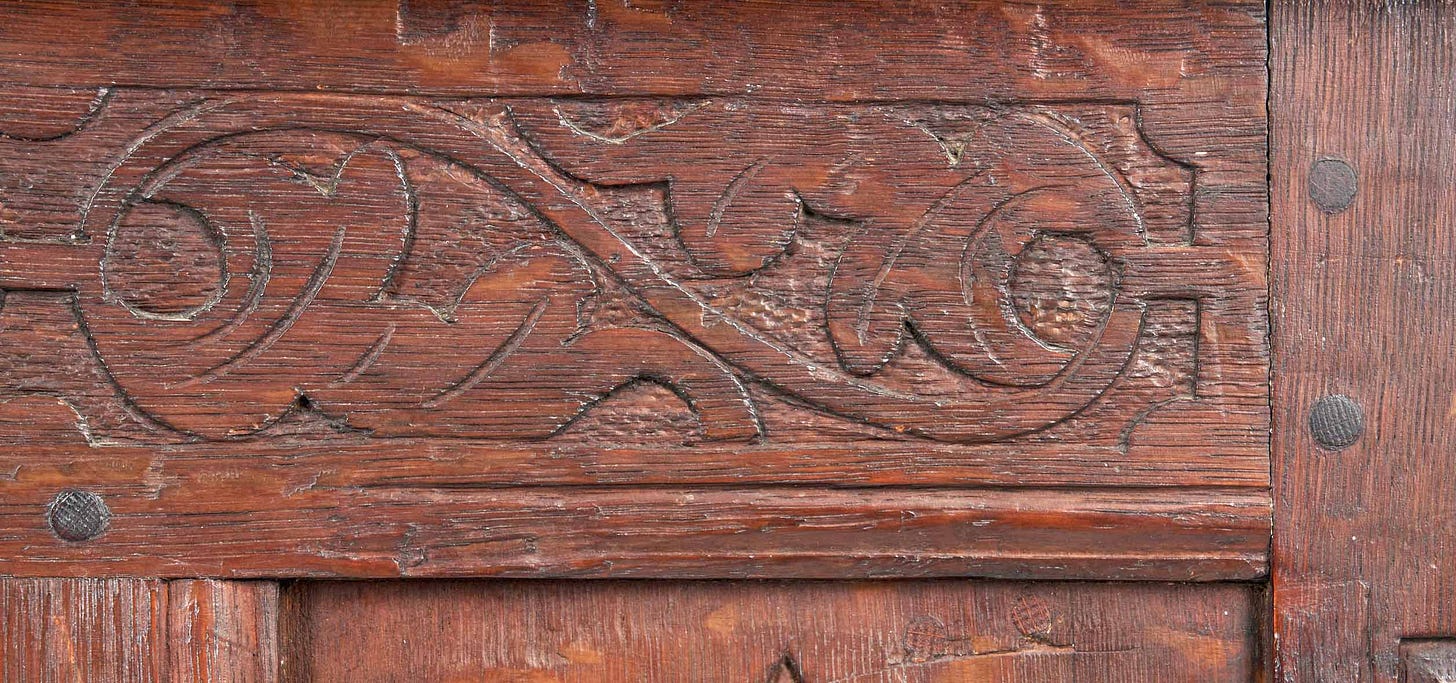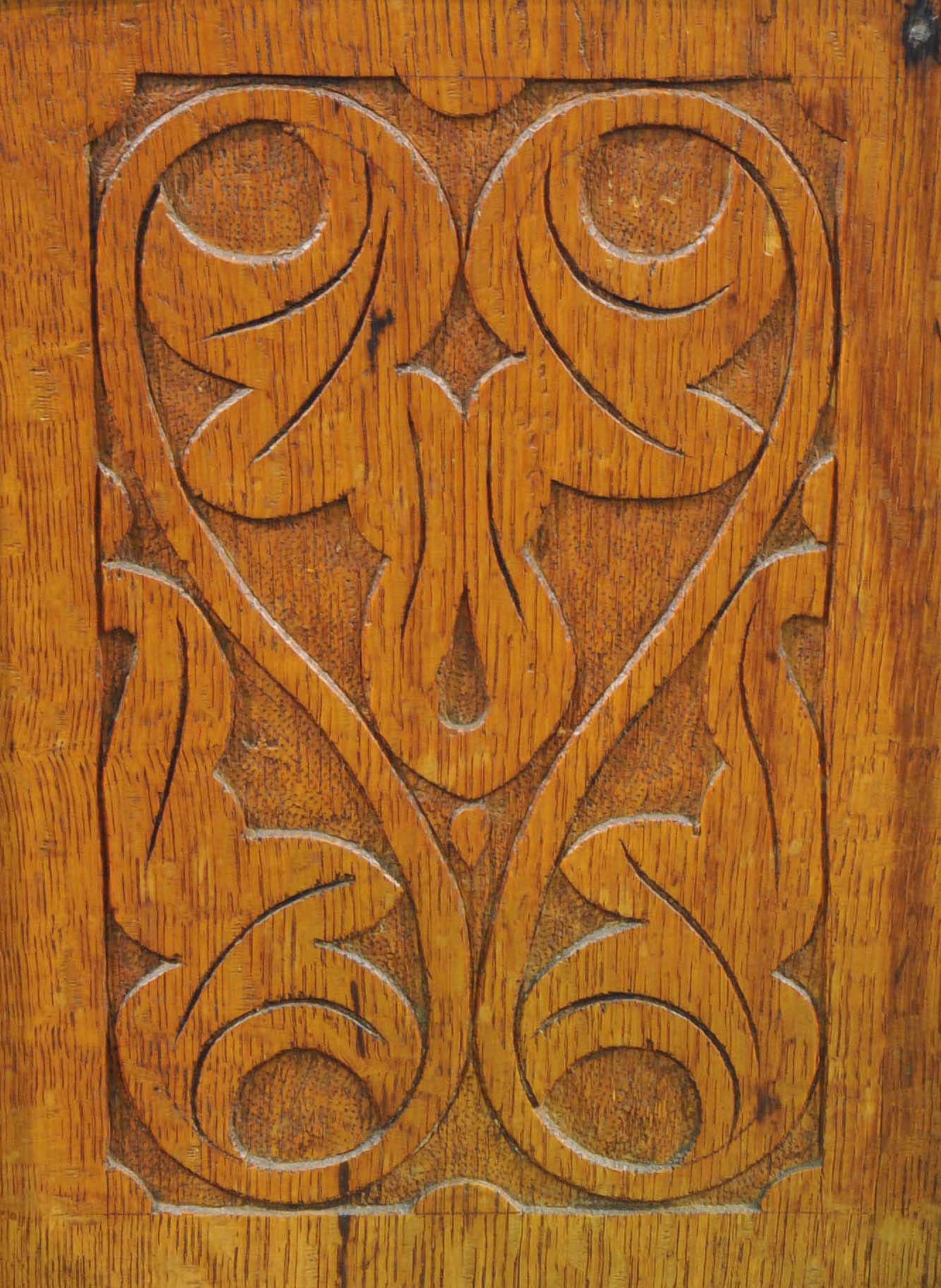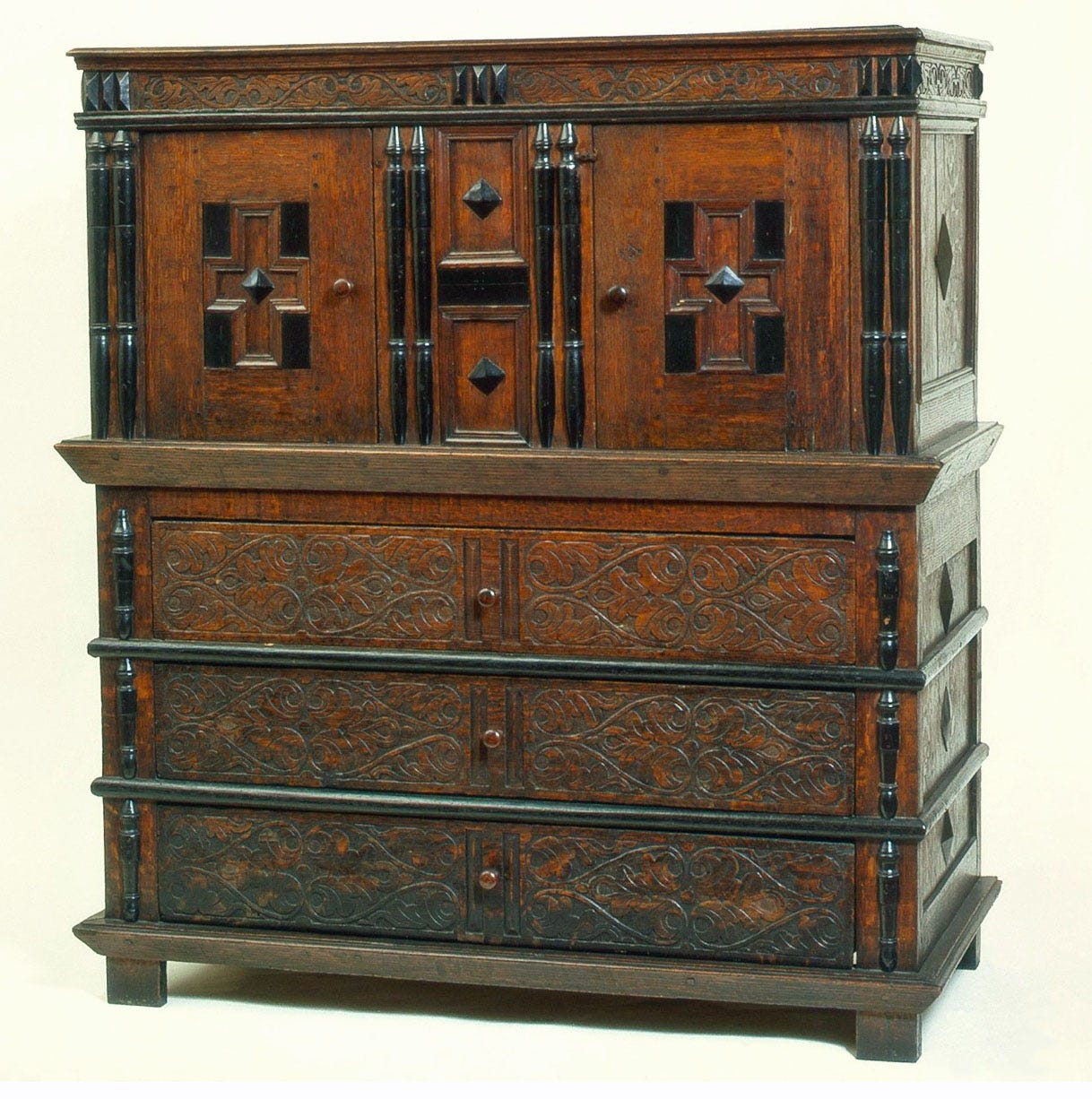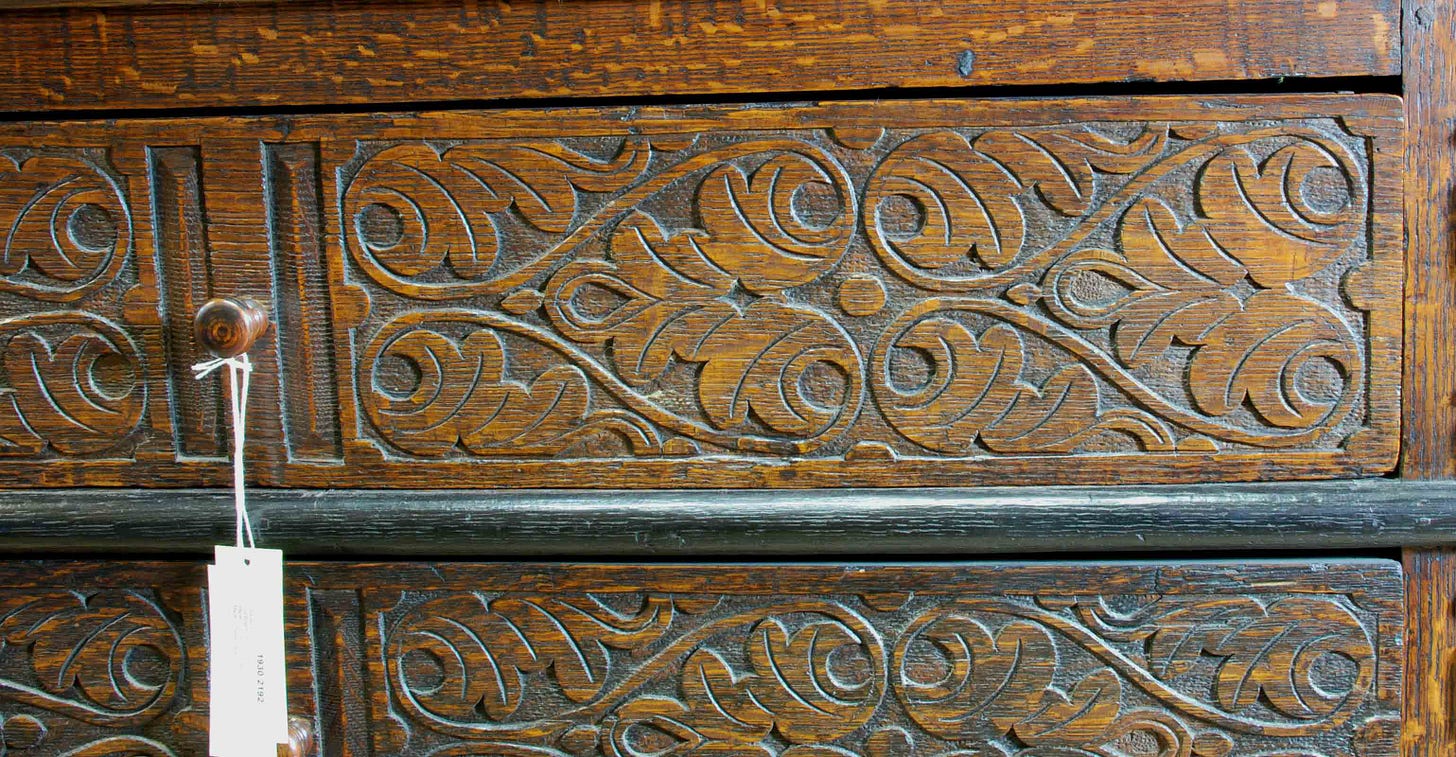a detailed look at one pattern from New Haven
and its variations
I just finished a carved-box class at Pete Galbert’s shop in Berwick, Maine. The week included near-perfect weather - an added bonus. When I teach this class, the students choose the pattern they’ll carve on their box fronts - and this time one of them wanted to use a pattern we associate with New Haven or Guilford, Connecticut. This post will look at several examples of the carvings from those shops - and the next one I’ll show you how I carve this/these designs. Here’s a basic unit - what I call an “S-scroll”. This one’s from a cupboard at the Yale University Art Gallery.
You can see that the carver used a compass to establish the rounded ends of the pattern. You can still see the inner arc struck beyond where it was to be carved. A vertical scribe line on our right hand end represents the line that arc was struck from - nearly. The centerpoint for that half-circle is a bit off the vertical line. But close enough. Maybe. The other end has the centerpoint, but not the vertical line. One more detail I want you to pick out - a point in the middle of the band that winds from one half-circle across to the other. Right smack in the middle of the pattern, both vertically and horizontally. And just so I know it’s not a fluke that the carver put that point there, here it is on a different piece of furniture - this one a chest sold at Skinner’s in the last year or so. The surface is a bit rougher, but you can see that point in the midst of that S-shape.
Often those scrolls are doubled-up in pairs, like this chest panel:
I can’t see that mid-way point on this panel, but the scribed arcs are there. It looks like their centerpoints got carved through. But this is essentially the same pattern at the first one - now stretched out & widened - with fewer details inside the “S”.
This cupboard - also at Yale - has the pattern on the cornice rail and the drawer fronts. This might even be the one the top photo comes from - but it’s best known because the pattern got messed up on the top drawer. On our right, the pair of doubled scrolls both point the same direction - all the others are bilaterally symmetrical.
Here’s the detail:
Keep reading with a 7-day free trial
Subscribe to Follansbee's Substack to keep reading this post and get 7 days of free access to the full post archives.


